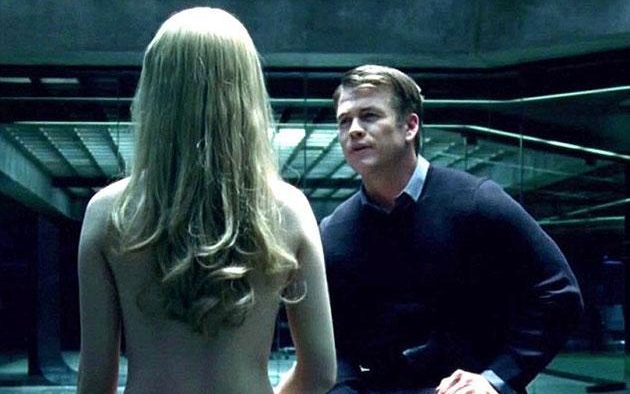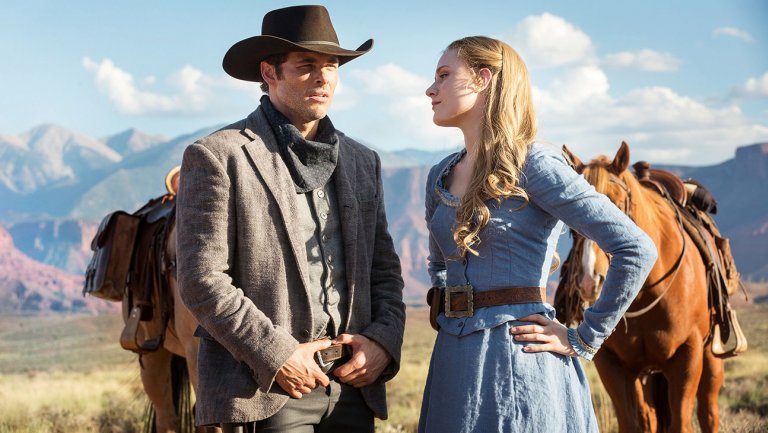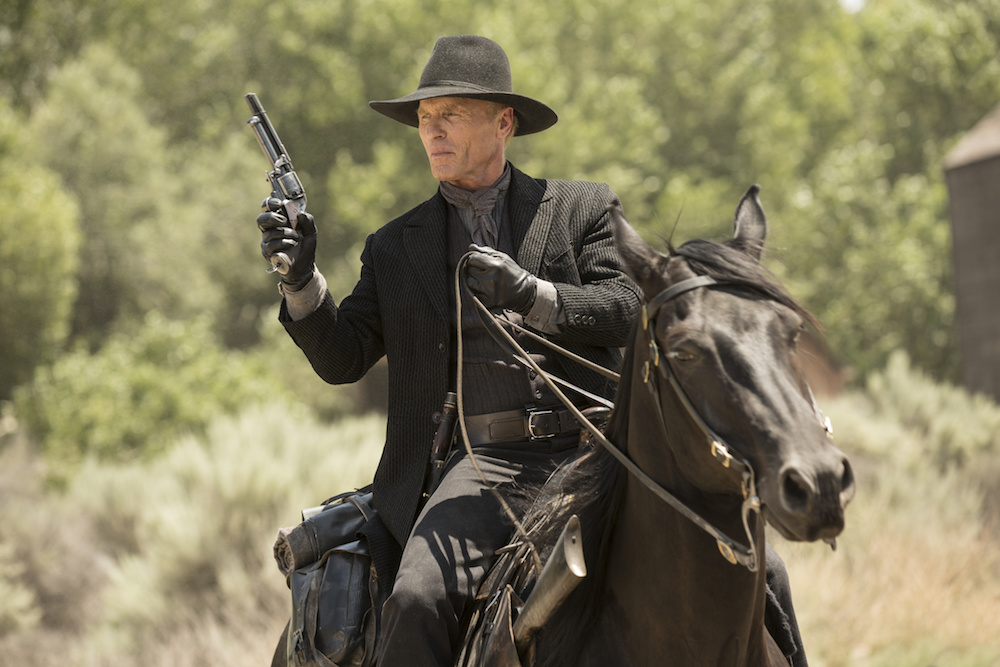“TV is a problem only if you’ve forgotten how to look and listen,” claims a university professor in Don DeLillo’s novel White Noise. He complains that his students are no longer open to the medium; they find television “worse than junk mail… They’re ashamed of their television past. They want to talk about movies.” White Noise was published in 1985, when television programs were regularly criticized for being formulaic, lacking real substance and focusing more on commercial success than artistic profit. In fact, television’s reputation as an artistic medium was so bad that, in 1996, the premium network HBO began running ads with their new slogan: “It’s not TV. it’s HBO.”
But now, the tables have turned. Personally, I have heard countless college students share viewpoints in perfect contradiction to the students in DeLillo’s book; they believe that film is dead, that television has been reborn. Avid fans of Game of Thrones and Mad Men will tell you; while Hollywood got hooked on commercially successful gimmicks like 3D superhero movies, television emerged as the premier platform for long-form storytelling. The “auteur” has been replaced by the “showrunner,” and art house cinemas are losing business to Netflix-streaming laptop computers.
HBO has long been fighting at the front lines of this television revolution. Oz, which debuted in 1997, was the network’s first long-form dramatic series, a dark story about life in prison that could be considered a forerunner in the push for weightier television content. Though Oz achieved little commercial success upon release, it paved the way for widely-acclaimed series like The Sopranos and The Wire. Then, unsurprisingly, the success of these high-quality dramas inspired imitations. The revolution that began on HBO spread across the television channels like static electricity. We saw Lost on ABC, then Friday Night Lights on NBC, followed by Mad Men and Breaking Bad on AMC. Fans and critics alike flocked proudly to their tubes; it was a new century, and the new content was no longer “worse than junk mail.” It was art.
But are we truly living in a “Golden Age” of television? Or is it a gilded age?
Though television may be better than it has ever been, I am too often disappointed by new series that turn out to be as formulaic as they are trendy. It is as if these shows are bouyed by the success of recent gems but still held to the low standards of classic television. This could be said of HBO’s most recent release, Westworld, a big-budget series that the network is banking on being the #NextBigThing. Though HBO’s Game of Thrones has maintained its army of followers, many of the network’s recent debuts—Vinyl, True Detective—have swallowed millions of dollars only to be cancelled in the prime time of their youth. For this reason, argues critic Emily Nussbaum in her New Yorker review of the series, Westworld “can’t just be good—it needs to be a hit, too.”
Unfortunately, Westworld, like those other eventual flops, blew its budget on flash to blind audiences to the sloppiness of its narrative. Critics should be the ones to remind us how to “look and listen” like DeLillo’s professor, to watch television with a critical eye. But for an array of reasons, critics like Nussbaum and the AV Club’s Zack Handlen are largely complacent in the inflation of the medium’s reputation. Though Nussbaum’s review of Westworld raises important questions about the show, it is ultimately as toothless as Handlen’s in its judgment.
Based on the Michael Crichton film from 1973, Westworld is an intriguing offering; the show follows an ensemble of characters involved in a fictional Western-themed amusement park where the wealthy guests can have their way—sexually and violently—with the artificially intelligent “hosts” that populate the expansive artificial frontier. The series is ambitious; it tackles the darker sides of entertainment and human nature, placing the AI robots in center frame and featuring most of the human characters as creepy executives or their bloodthirsty clientele. As the robots slowly gain awareness of their sad situation, they increasingly inspire our empathy; the poor things get shot, stabbed and raped until night falls and their memories are wiped for another day of human amusement.
“The show introduces itself as a science-fiction thriller about cyborgs who become self-aware,” writes Nussbaum, but “then reveals its true identity as what happens when an HBO drama struggles to do the same.” She argues that the series is an attempt at criticizing our sadistic enjoyment of sex and violence in the media, “an exploitation series about exploitation.” The show actually works though, argues Nussbaum, because of its “elegance” and the way it “gets under your skin.” She is not wrong; like its opening credits sequence—needled artificial ligaments and a shiny player piano—the show is often as unnerving as it is stylish.
Similarly, Handlen believes that the first episode of Westworld succeeds because it “never lets the horrors it depicts completely undercut a certain sense of wonder.” He discovers this sense of wonder in the hopeful robotic hosts, and also in himself as he puzzles over the mysteries of the amusement park. However, there is an important distinction to be made between elegance and wonder—while the former is a question of aesthetics, the latter is largely a function of plot. And the plot of Westworld creates a sense of wonder more through formulaic twists than through the emotive eyes of Dolores (the park’s “farmer’s daughter” attraction and the series’ main star).
Specifically, In order to build the foundations of a narrative that could last longer than the first episode’s ninety minutes, Westworld introduces layers of enigma that are clearly intended to reel audiences in without demonstrating any relevance to the rest of the story. For example, there is Ed Harris’ character, “The Man in Black,” who is searching for some kind of hidden objective within Westworld. Apparently, the only way to find this meta-game is to torture the robotic citizens until they divulge any relevant information—The Man in Black scalps a poor cowboy to find a maze hidden under his plastic forehead. Why should we, as an audience, care about this puzzling meta-game? It is not related to anything else that happens in the episode; the subplot only exists to develop a pervasive sense of conspiracy, as if beneath the main narrative there is something “bigger” going on. This tactic has been popular mostly in sci-fi and fantasy programs since Lost employed it to keep viewers intrigued for 121 cliffhanging episodes. The series constructed endless layers of mysteries while promising to reveal every secret, to eventually tie up each of its loose-ends. Spoiler alert: at Lost‘s finale, most of the series puzzles went entirely unsolved. If the generally held consensus is that a show is successful as long as it keeps audiences watching; I would argue that television succeeds only when a series keeps its promise to tell a complete and satisfying story. Lost‘s failure in this respect is enough to make me “wonder” about where Westworld is headed.
Though Handlen agrees that The Man in Black is “an element that doesn’t quite work,” the lack of real plot development only makes him nervous for the episodes to come. He perceives the pilot as a success even though it functions only as extended exposition, more like the first part of a riddle than the first chapter of a full story. I find this logic confusing, as you would never endorse a riddle without knowing its solution—one half is meaningless without the other. Although she is more hesitant to demonstrate outright support of the series, Nussbaum similarly advises that we keep watching.
Primarily, Nussbaum criticizes the show for making use of the same exploitation that it claims to denounce—patriarchal violence against women in entertainment tailored to straight men. This is a valid concern; social satire can be even more problematic than its targets when it takes societal flaws to extremes without delivering the message that they are, in fact, flaws. Nussbaum worries that Westworld rides dangerously close to this type of ambiguity. She asks, “Is Westworld the blinkered macho fantasy, or is that ‘Westworld’?” This is the kind of scalpel-sharp critique that is too often lacking in television criticism; looking past the face value of a show to dissect it under the light of a larger political framework.
But the way that Nussbaum follows her query reveals why serious critique of the medium can be so challenging: “It’s a meta-cliffhanger with its own allure,” she writes, “leaving us only one way to find out: stay tuned for next week’s episode.” Handlen makes a similar statement in his review, sharing that he is uncertain whether or not the story will be sustainable, but is “eager to find out.”
This is the paradox of television critique; a critic’s job is to swallow works of art whole, to digest them completely in oder to judge them fairly, but television is rarely complete. When a show has a strong following and commercial success, it can afford to close its narrative arcs and tell a whole story. But many series, like Lost, and probably Westworld, intentionally leave plot-lines soaring and mysteries unsolved so as to keep audiences hooked. How is a critic to judge a work that might be nothing but bait, that will only take off its mask after years of seasons have come and gone? Nussbaum and Handlen are somewhat critical of Westworld, but they hold their tongues in light of the fact that the series is only getting started, that their worries could be assuaged by future episodes. However, this position is insufficient, because future episodes will only exist if the audience responds positively to early episodes. In this way, television critics have their hands tied; they cannot fairly judge a show until it is finished, but still must play a role in whether or not that completion ever occurs. Netflix’s all-in-one season release model would help critics navigate this issue, but HBO has maintained its commitment to the classic episode-per-week trickle.
Moreover, the problem is only complicated by the fact that directors and writers are often shuffled between episodes and seasons—Westworld, for example, has had a unique creative team for each installment. Where does a singular work of television end and the next one begin? Handlen has written reviews of each Westworld episode one by one, becoming increasingly critical as HBO reveals more of its hand. “Spending hours showing us a curtain might hold our attention,” he writes in his review of episode five, “but sooner or later, you have to pull the curtain back.” Of course, penning piecemeal reviews like this limits a critic’s ability to judge the whole picture at once. On the other hand, Nussbaum’s review covers the first four episodes, an arbitrary number that is still too few to judge Westworld’s complete narrative, yet simultaneously too many to treat the episodes like individual works.
It is tempting to submit the movie Ex Machina as the converse of Westworld (the film about artificial intelligence is subtle where Westworld is exploitative and narratively-taut where the show is tangled). It is equally tempting to entirely dismiss the show because of the painful performances from two of its actors, Simon Quarterman and Sidse Babett Knudsen, who play important Westworld executives (while he overacts enough to make Anthony Hopkins seem like a robot, she comes off colder than the robots due to her monotonic attempt at an American accent). But to make such warranted criticisms would be unfair to an artwork that is still unfinished. There is only one way to find out the truth about Westworld, and that is to pay for an expensive premium network subscription and watch one episode each week until most fans lose interest and the series is canceled. Only then will it be finished and we can criticize fairly in retrospect. But do not be discouraged! We are lucky to be living in the Golden Age of television.





17,224 Comments
Simply a smiling visitor here to share the love (:, btw outstanding design . “Audacity, more audacity and always audacity.” by Georges Jacques Danton. kundalini activation process
An situs slot online site like ALEXISTOGEL prioritizes the luck and satisfaction of its members. With a comprehensive selection of slot games and a range of attractive profit offers, players have the opportunity to enjoy an exceptional gaming experience. ALEXISTOGEL is committed to delivering reliable and fair gaming that keeps players coming back for more.
Choose MZ Global Sedans for top-tier Airport Car Service In NJ, offering seamless transportation to all New Jersey airports. Our Airport Car Service in NJ includes professional chauffeurs and luxury vehicles, ensuring a hassle-free journey. With MZ Global Sedans, enjoy punctual and stylish airport transport every time.
In 2023, more than 123GOAL half of unprovoked shark bites
I am glad that it turned out so well and I hope it will continue in the future because it is so worthwhile and meaningful to the community. Brabant Nieuws Vandaag
That appears to be excellent however i am still not too sure that I like it. At any rate will look far more into it and decide personally! Orlando airport transportation
For an elevated travel experience, trust MZ Global Sedans’ Executive Car Service In NJ. Our Executive Car Service Saddle Brook offers business-class transportation, ideal for corporate clients. Let MZ Global Sedans provide the luxury and reliability you need for seamless travel.
Them believes altogether best suited. Every one of lesser areas ended up being built by lots of track record instruction. I like the necessary paperwork a good deal. Nagaplay138
I’m not that much of a online reader to be honest but your sites really nice, keep it up! I’ll go ahead and bookmark your site to come back later. Many thanks rajabandot
Hi, Neat post. There is a problem with your web site in internet explorer, would check this… IE still is the market leader and a big portion of people will miss your magnificent writing because of this problem. 吃瓜不打烊
certainly like your web site but you have to check the spelling on quite a few of your posts. Many of them are rife with spelling problems and I find it very troublesome to tell the truth nevertheless I’ll certainly come back again. Win2max
That is certainly on top of that a superb send i always basically liked mastering. It may not be everyday that any of us store the chance to determine the one thing. Cakhia tv
I am glad you take pride in what you write. This makes you stand way out from many other writers that push poorly written content. 네네티비
It is best to in essence excellent in addition to stable tips, which suggests see:
Abdul Saboor
Refrigerator Maintenance in Newark
Keep your refrigerator in top shape with our professional maintenance services in Newark. Our technicians provide thorough inspections, cleaning, and tune-ups, addressing issues like temperature inconsistencies, worn-out seals
With System Shuttle Miami, Airport Transportation Services are convenient, reliable, and hassle-free. Located in Miami, FL, System Shuttle Miami specializes in prompt airport transfers, offering both comfort and efficiency. Count on System Shuttle Miami to make your journey to and from the airport seamless and enjoyable with our airport transportation services.